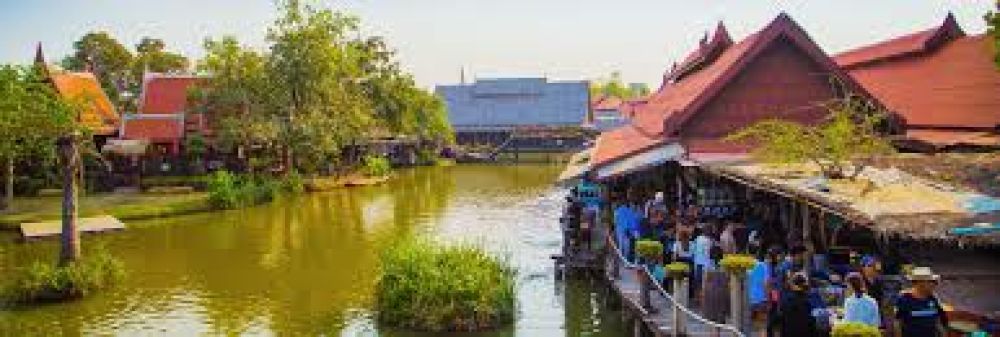

The Ayutthaya Floating Market is not just a hub for trade and commerce; it's a living museum that captures the essence of an era long gone. The market is situated in the ancient city of Ayutthaya, which was founded in 1350 and is located in the present-day Phra Nakhon Si Ayutthaya Province of Thailand. Ayutthaya was once the capital of the Kingdom of Siam and a significant trading port from the 14th to the 18th centuries. However, the city met a devastating end in 1767 when it was invaded and destroyed by the Burmese army, causing its inhabitants to abandon it.
Tourism in Ayutthaya began to flourish after it was declared a UNESCO World Heritage Site in 1991. The ruins of the historic city became an important attraction for those interested in Thailand's past. It was the combination of ancient ruins, temples, and its rich history that began to draw both local and international tourists.
With tourism growth, the Ayutthaya Floating Market was established not only to offer a shopping experience but also to reflect the traditional Thai way of life alongside the waterways. Although it is a newer attraction, created primarily for tourists, it is designed to look like a market from the times when Ayutthaya was the thriving capital of Siam. Stalls and shops are built in a style reminiscent of ancient Siamese architecture, and vendors sell traditional Thai food, handicrafts, and souvenirs from wooden boats and waterfront shops.
With the global shift towards experiential travel, visitors to Ayutthaya are increasingly seeking authentic experiences. As a result, there have been efforts to provide tourists with immersive cultural encounters such as traditional Thai craft workshops, cooking classes, and historical reenactments at the floating market.
Additionally, eco-tourism is gaining traction. Many visitors combine their trip to the floating market with eco-friendly activities such as cycling tours around the ancient city, participating in local conservation efforts, and staying in eco-friendly accommodations. The increased awareness of sustainability has seen the market incorporate practices to reduce environmental impact, such as limiting the use of plastic and promoting local products.
The pandemic paused international travel, but with the world reopening, Ayutthaya and its floating market are witnessing a surge in domestic tourism. In response, there has been a push towards enhancing digital marketing and virtual experiences, providing potential visitors a taste of the market and its surroundings online.
The Ayutthaya Floating Market offers more than just a glimpse into the historical trade practices of ancient Siam; it embodies the city’s resilience and ability to adapt to modern tourism trends. It remains a vital part of Ayutthaya's appeal and continues to provide visitors with an enriching journey through Thai culture and history.